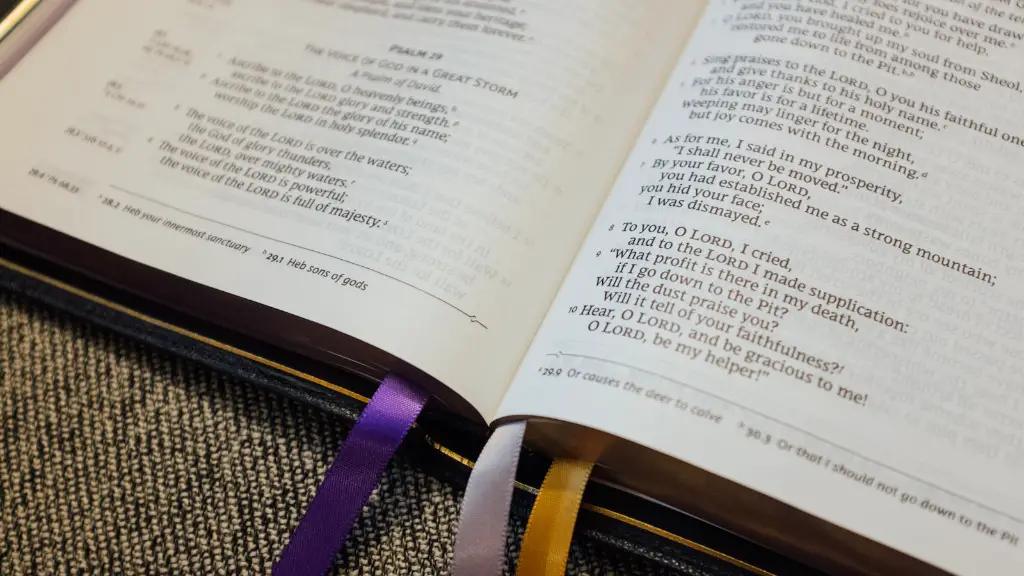What Happened To King Nebuchadnezzar In The Bible
King Nebuchadnezzar was a powerful ruler of the Babylonian Empire in Biblical times, mentioned in both the Old and New Testaments of the Bible. He is best known for his conquests, ruthless rule, and his pride. According to the Bible, this pride ultimately led to his downfall.
King Nebuchadnezzar was born in 634 BCE and was the second ruler in the Chaldean dynasty. He took the throne from his father Nabopolassar and ruled from 605-562 BCE. During his reign, he was able to expand the empire and its holdings in the Mesopotamia region. He is most famously known for conquering the Kingdom of Judah and establishing the city of Babylon.
King Nebuchadnezzar’s reign was characterized by great pride, which is recorded in the Bible. His most famous display of pride was when he constructed the Tower of Babel in an effort to further his ambition. His actions can be seen as reflective of the overall Arab-Babylonian culture, in which a ruler’s success was indicative of their ability to garner God’s favor.
This pride came at a great cost, however. According to the Book of Daniel, King Nebuchadnezzar was punished by God for his arrogance by being turned into an animal for a period of seven years. This punishment was meant as a lesson in humility and was seen as a warning for rulers to humble themselves before God.
The story of King Nebuchadnezzar’s punishment can still be seen as an important lesson today. It serves as a reminder that no matter how powerful or successful one may be, humility is still essential. As the saying goes, “pride comes before a fall,” and King Nebuchadnezzar was no exception.
King Nebuchadnezzar’s Legacy Today
Today, King Nebuchadnezzar is remembered as one of the most powerful rulers of the Babylonian Empire. He is also remembered for his pride and the repercussions it caused. In the present day, many people still look back at his story as a cautionary tale about what can happen when one is too prideful.
Throughout the centuries, he has been referenced in literature, movies, and other forms of art as a symbol of prideful monarchs. One of the most famous references to King Nebuchadnezzar is by poet George Gordon Byron in his 1812 poem “The Destruction of Sennacherib.” His legacy lives on, an example of hubris and ultimately the consequences of pride.
Beyond the Bible
Outside of Biblical circles, King Nebuchadnezzar is still revered as one of the most influential rulers of the ancient world. He was a great builder and is credited with erecting several impressive structures, including the Ishtar Gate, which has been well-preserved over thousands of years. His advancements in engineering have had long-lasting effects on architecture around the world.
He is also credited with advancements in law, culture, and trade. Under his rule, Babylon experienced quick growth in population and the standard of living. His reforms shaped the city into one of the most advanced cities in the Middle East at the time.
The legacy of King Nebuchadnezzar is evident in the archaeological and historical records. Though his pride was the ultimate downfall of his rule, his accomplishments were unparalleled.
The Impact of King Nebuchadnezzar Today
The reign of King Nebuchadnezzar still has a major impact on society today. His story has been told and retold, providing a valuable lesson in the importance of humility. He has influenced popular culture and art, providing a cautionary tale and a source of inspiration. For example, many movies have explored the theme of pride leading to a downfall and have used the story of King Nebuchadnezzar as their basis.
In addition, his accomplishments in engineering, law, culture, and trade have left a lasting impression on the world. For example, he is credited with establishing many key structures in the city of Babylon, which are still standing today.
His legacy also shines a light on the importance of humility in ruling. Though King Nebuchadnezzar was an incredibly powerful ruler, his downfall serves as a warning for those seeking a similar fate. No matter how powerful or successful one may be, it is important to remain humble.
King Nebuchadnezzar & Theology
Aside from his historical legacy, King Nebuchadnezzar also had a major impact on theology. In the Bible, he is seen as an example of God’s power and judgment. His downfall is seen as a lesson in humility and a warning to rulers who take their power too far.
As a result of this legacy, King Nebuchadnezzar’s story has been the focus of many theological discussions. For example, it has been used to explore the concept of sin and its consequences. It has been used as an example of how pride can lead to a downfall and how earthly rulers are not immune from the consequences of their actions.
This discussion about the theological implications of King Nebuchadnezzar’s story is still relevant today. Many theologians still use it to explore the concepts of sin and retribution and its implications on the modern world. It is also a reminder of the power of faith and adherence to religious teachings.
Conclusion
King Nebuchadnezzar is remembered as one of the most influential rulers of the ancient world, both in the Bible and outside of it. He is remembered for his accomplishments in culture, engineering, and trade, as well as his pride and its consequences. His legacy is still evident today, as his story serves as a lesson in humility and the power of faith.




